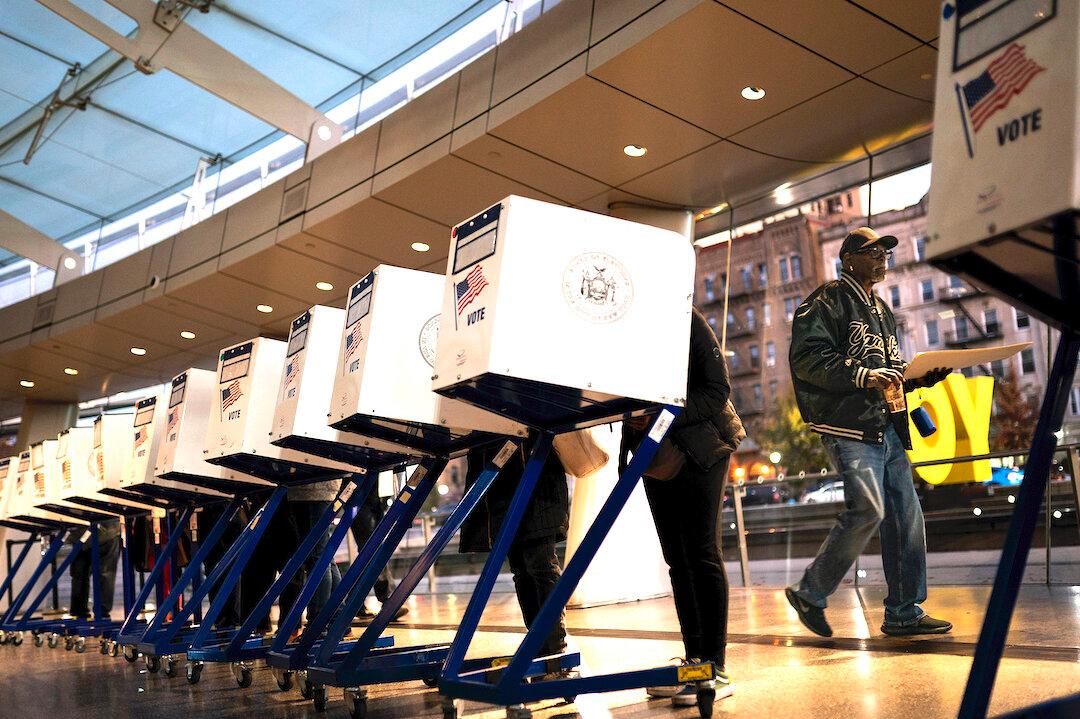A law approved in 2023 that shifted elections in New York to even-numbered years violates the state Constitution, according to a state Supreme Court judge.
New York Election Law Unconstitutional: Judge
The law shifted dates for elections across the state.

The first voters of the day begin filling out their ballots at a polling site in the Brooklyn Museum in New York City on Nov. 8, 2022. John Minchillo/AP Photo
Zachary Stieber is a senior reporter for The Epoch Times based in Maryland. He covers U.S. and world news. Contact Zachary at [email protected]
Author’s Selected Articles




